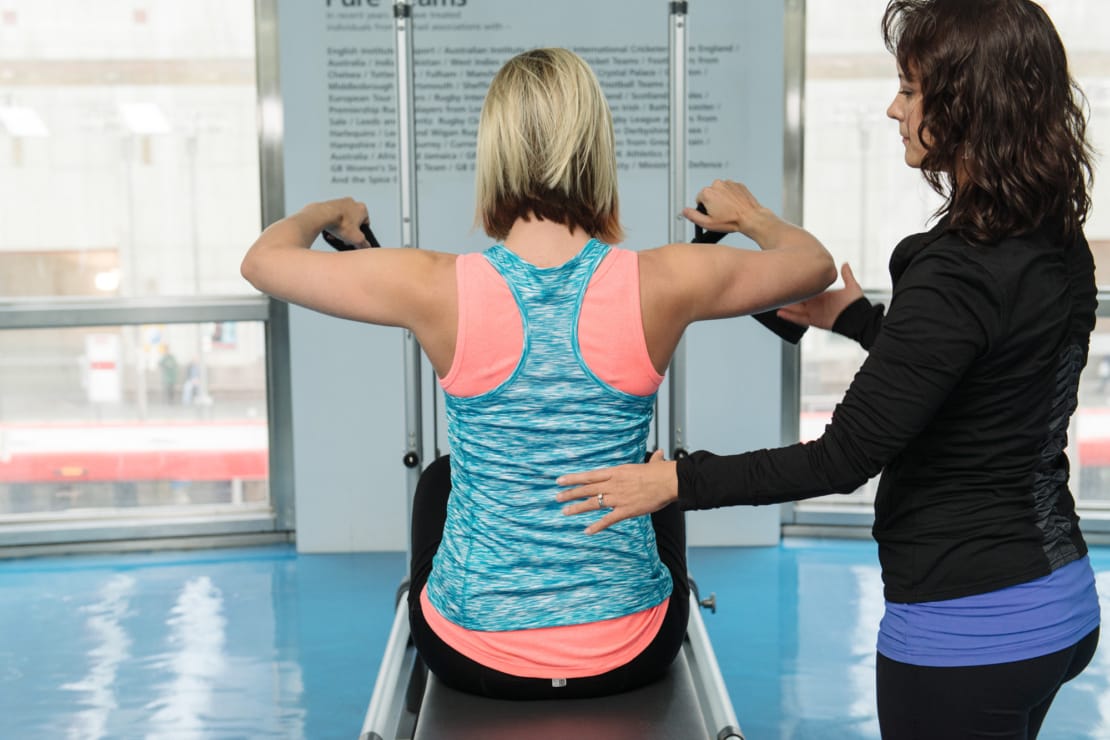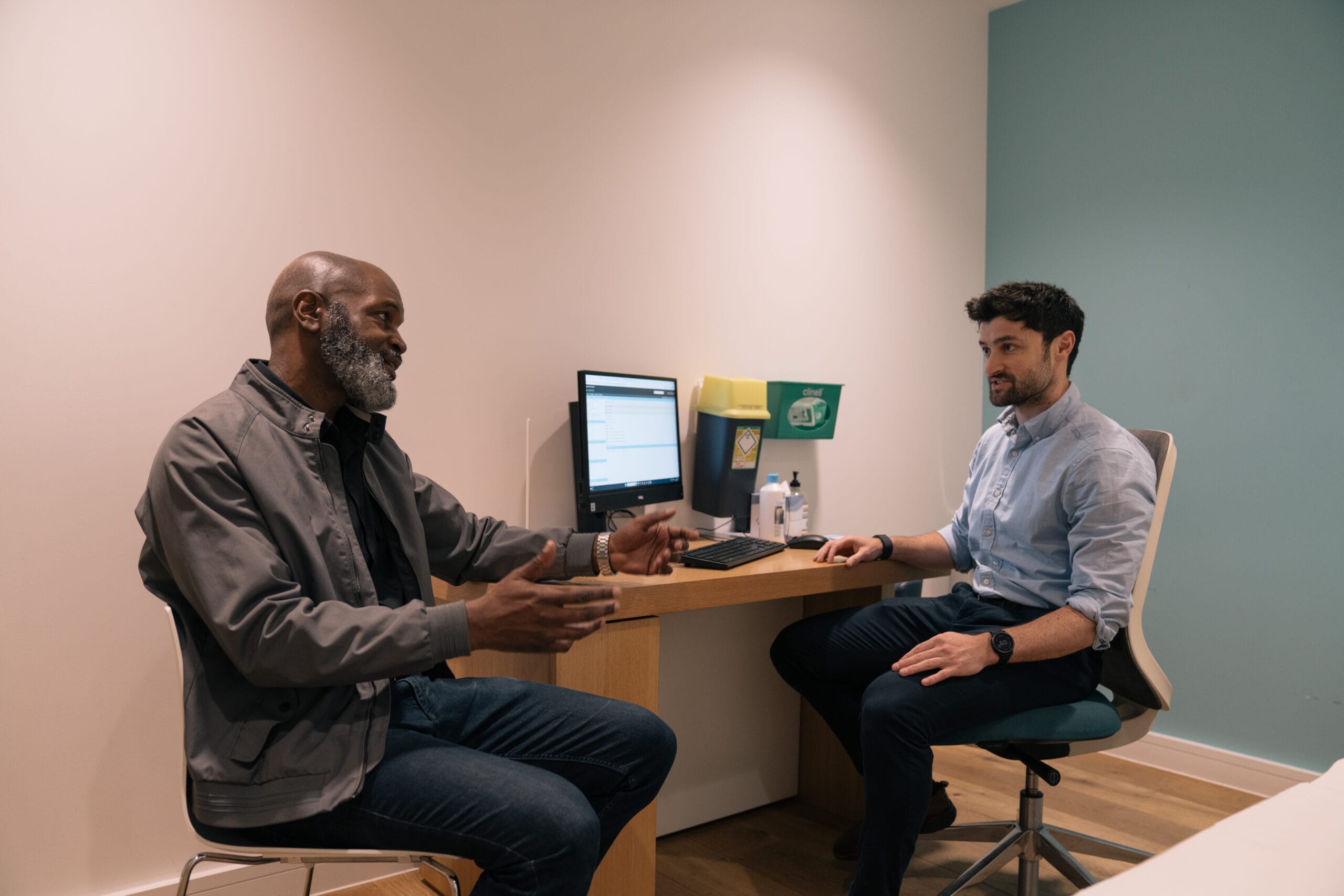Pure Pod Episode 2: An Introduction to Women’s Health

Dr Linia Patel
Women’s Health Dietitian & Performance Nutritionist
- 13 November, 2024
- Women's Health
- 4 min read
Multiple studies show that women’s pain is often undertreated compared to men; for example a study by the American Heart Association found that women waited 29% longer to be evaluated for heart attack when reporting chest pain. This often means conditions such as Menopause, Endometriosis or pelvic health are under discussion in the public realm, or worse yet, mistreated on a patient-by-patient basis.

In this podcast, we’ll look at the treatment options available to women for these conditions, and also look at how exercise and diet can be tailored to mitigate symptoms and improve general well being.
We’re joined in this episode by Women’s Health, a dietitian and performance Women’s Healthwho specialises in helping women better achieve optimal health, and Women’s Health, Pure Sports Medicine’s head of Women’s Health and a specialist musculoskeletal and Pelvic health physiotherapist.
Listen to the podcast in full below, or read on for some snippets from this illuminating conversation. You can also subscribe to The Pure Pod on Apple, Spotify, or wherever you get your podcasts.
Timestamps:
- How Pure Sports Medicine approaches common issues pertaining to women’s health (1:40)
- The common misconceptions around menopause (2:30)
- How menopause can affect general wellbeing (5:30)
- Tips for improving quality of life through menopause, and how nutritionists and physiotherapists may work together towards an effect treatment plan (11:10)
- The early symptoms of endometriosis (15:30)
- How endometriosis can affect quality of life (18:30)
- How a multidisciplinary approach can support women with endometriosis (21:00)
- How women can take control over their health and exercise, when much of the research is optimised for men’s performance (26:00)
- The importance of pelvic floor health to a woman’s general wellbeing (29:40)
- Tips for maintaining better pelvic floor health (33:10)
- Managing common injuries for active women (36:10)
- How women can tailor their exercise schedule to stages of their menstrual cycle (40:20)
What are some of the common misconceptions around menopause?

Dr Linia Patel: There are so many different misconceptions out there. One of them is just not even knowing what the menopause actually is.
In 2003 there was a survey that was done which showed 85% of women were experiencing symptoms, but only 10% of them actually got treatment and help. And then we know that other studies or other surveys have also shown that 60% of women will be unsure of actually what symptoms they’re going to be experiencing.
So typically, symptoms like hot flushes are linked with the menopause, but we actually know that there’s so many other symptoms like mental health, blood sugar control, fatigue and lack of sleep.
Even though we get symptoms, a lot of us don’t know that what we eat or how we live has an impact on the fact that that really affects our symptoms. So there’s so much lack of awareness out there, and that’s because even in the science, there’s not enough research, which means that there’s not enough guidelines that are specific for women who are in this transition.
How might a nutritionist and a physio work together to help a woman struggling with menopause?
Dr Linia Patel: Ash and I regularly make referrals to each other. One of the first things that I look at: how hydrated is this person in front of me?
If I say things to you like low energy or a 4pm slump, you know, reaching out for that Kit Kat or digestive biscuit, your cup of tea, headache, perhaps mood swings, brain fog, maybe you’re getting urinary tract infections or dry skin. That sounds like some of the symptoms of menopause. But you know what? Those also could be symptoms of being mildly dehydrated. When I dig into it, they say things like “Linia, going to the toilet is such a faff,” or “I’m going to the toilet all the time,” I immediately think of making a referral to someone like Ash.
Aisling Frier: In that case, we might do a pelvic floor exam. Sometimes we can see the pelvic floor is actually doing well, but it’s your musculature around your glutes or your gut that is leading to little leaks, shall we say. In that case, I might recommend people see our Pilates team, or our Strength and Conditioning coaches.
Dr Linia Patel: I’d then take that patient back and look at their diet. How can we maintain that muscle mass, as we know women lose muscle during menopause. As oestrogen decreases, there’s a loss naturally through ageing, of muscle mass exacerbated by that oestrogen. So you need to make sure you’re eating the protein, but also you need to make sure you’re doing the right exercise.
What are some of the early warning signs of endometriosis?
Aisling Frier: To give a little bit of context, endometriosis is when the endometrial tissue grows outside of the uterus. That can be around the ovaries as the stages develop, sometimes that can attach to the uterus and the bladder. It’s an incredibly debilitating condition.
Symptoms you need to look out for? Heavy periods, pain around ovulation, pain with intercourse. You can also get things like low back pain, and it’s usually cyclical, so it matches in with your cycle. Some people may also have pain radiating down their legs.
How can physical treatment and diet improve quality of life?
Aisling Frier: It’s a mix of nutrition, pelvic health and physio. We need to get these women exercising because it’s so important for their cardiovascular health, for their bone health, for their mental health. We know the rates of depression and anxiety are much higher in patients with pelvic pain.
Dr Linia Patel: Endometriosis is an inflammatory condition, so from a nutrition point of view, I recommend foods with anti-inflammatory properties.
An anti-inflammatory diet is an eating pattern that is based on whole foods, lots of colourful fruits and vegetables, lean protein, whole grain carbohydrates and healthy fats in each meal. We often point to the ‘Mediterranean Diet’ as an example of an anti-inflammatory eating pattern.

Advice
Over the last 20+ years our experts have helped more than 100,000 patients, but we don’t stop there. We also like to share our knowledge and insight to help people lead healthier lives, and here you will find our extensive library of advice on a variety of topics to help you do the same.
OUR ADVICE HUBS See all Advice Hubs

